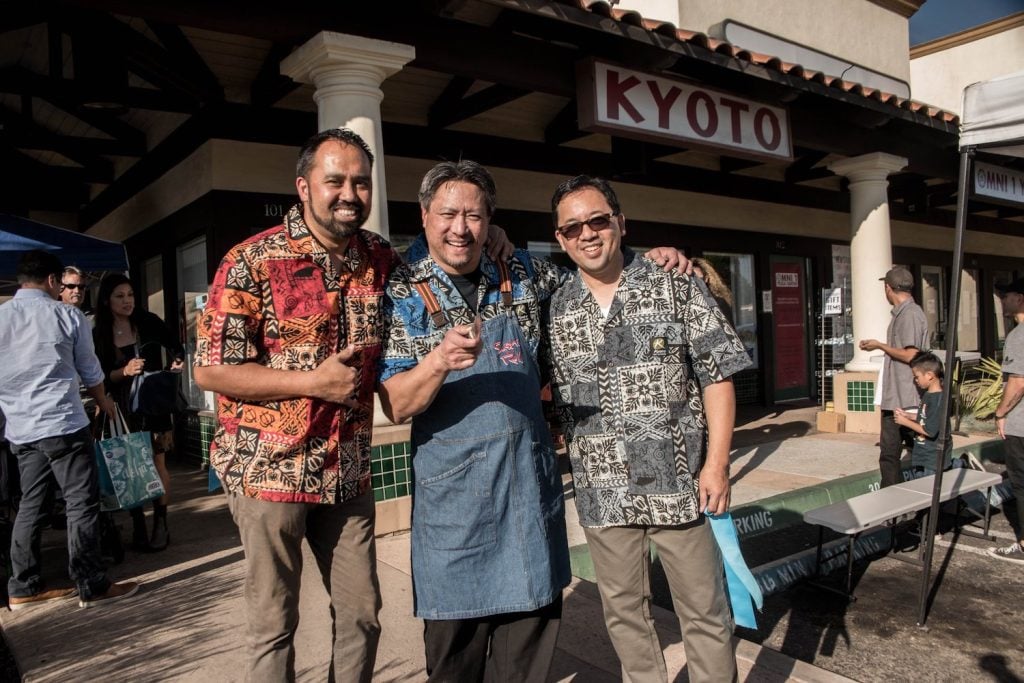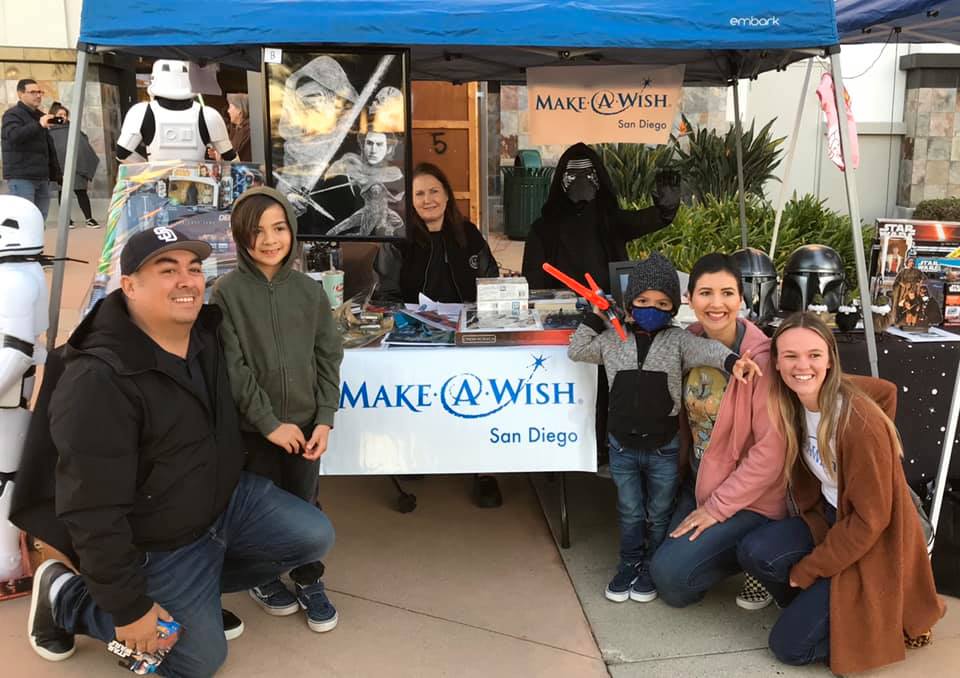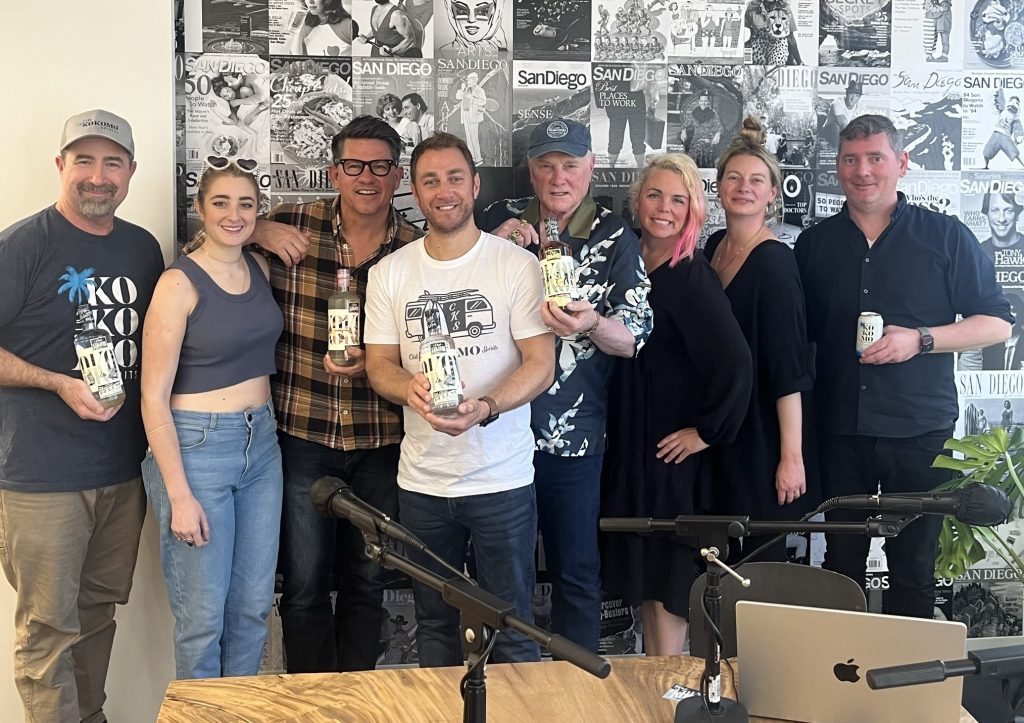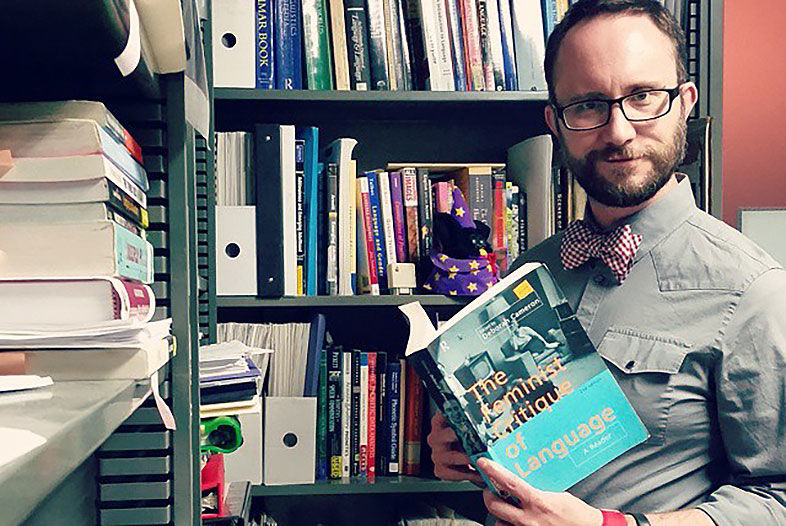Recommended Reading
In the Land of Invented Languages by Arika Okrent
A Way with Words podcast with Martha Barnette and Grant Barrett (based out of San Diego!)
The World in Words podcast
Let’s Go A-Linguisting! YouTube channel by D.S. Bigham
You are a self-described language nerd, yes?
Absolutely. When I say I’m a “language nerd,” what I mean is that I’m fascinated by everything about language and languages—the history of particular words (the history of “bear” is always fun to read about), the relationship between different languages (like how Norman French “invaded” English around the 12th century, or how Sanskrit is a distant sister to Greek), or the little quirks about language—in English, you can say “Who’s there?” upon entering a dark room, but can’t say “Which person is there?” even though they’re functionally the same thing. Why not? That’s linguistics!
So what’s the gist of the Klingon class?
The idea is that the best way to learn about something is to take it apart and break it and remix it and see how it all fits together. With natural languages, you can’t really do that because you’ve got all these biases and perceptions about how language should and shouldn’t work. But if you get to make up your own language, then you can start to tease out what’s a bias and what’s a requirement.
So we look at a bunch of constructed languages—Esperanto (an international language to bridge communication between people from different nations), Dothraki (from Game of Thrones), Nadsat (A Clockwork Orange), Lapine (Watership Down), Láadan (the science-fiction Native Tongue series), and, of course, Klingon (Star Trek)—to see what has and hasn’t worked. Best example—most languages end up with at least noun-like things and verb-like things. What if you tried to make a language that was all nouns and no verbs? By putting that question in a conlang (constructed language) context, you avoid defaulting to the English or Spanish or whatever setting and get to start asking whether things like verbs are required for a language to be a language.
Didn’t you call it a study of “hacking language”?
People seem to get what hacking means—it’s about breaking something and repurposing it to solve a problem: “Why does natural language look like it does?” By hacking language from the conlang [constructed language] perspective, we can begin to answer that question.
What can we learn about ourselves from the Klingons?
One of the coolest things about the Klingon language is that it puts the object of the sentence first and the subject last, so “Doug teaches a class” would be “A class teaches Doug” in Klingon (“ghojwI’mey ghojmoH Doug”… more or less). And this focus on objects allows students learning about Klingon to ask… why do we do it the other way?
What other groups have invented languages?
Tons! We’re in a golden age of conlangs right now, thanks to Tumblr, YouTube, and the popularity of languages like Klingon and Dothraki, which is basically the new Klingon. People are getting tattoos in Dothraki, learning to speak it, and I even had one of my students do an exam on the historical reconstruction of the language.
You’re also an expert in “queer linguistics”—what is that?
Sometimes that means that I compare the speech of lesbians and gay men to the speech of straight women and straight men, sometimes it means that I look at the language used to portray LGBT/queer people in popular media.
A big thing right now is looking at how people talk about Caitlyn Jenner compared to, say, how they talk about Kim Kardashian. When a person calls Kim “she,” there’s probably no special intonation, but there often is when people call Caitlyn “she.” Maybe it’s because the speaker assumes that there’s some different quality to the “she-ness” of Kim versus Caitlyn, even though there’s not. Or when people talk about Caitlyn’s looks, why do they emphasize the qualities they do? It has to do with age, apparent race, the two women’s different interactions with media, and certainly with the fact that one of those women was recently perceived as a man.
And sometimes it means that I look at how LGBTQ people talk to other LGBTQ people versus how they talk to heteronormative people. The word “family” for straight people usually conjures up notions of blood relatives, but for LGBTQ people, it’s often used to mean other LGBTQ people.
What other languages are your students studying?
I’ll always have some students taking Korean, a couple taking Japanese, at least one student taking Chinese, usually a student or two taking Arabic, and then a scattering of French, German, Italian, Latin/Greek, etc. Funnily enough, because Invented Languages: Klingon and Beyond! counts for a core humanities requirement, I get mostly science and business students in there, about three-quarters of whom have never taken a foreign language in college, and then a lot go on to take a language class after their experience in my course. It’s a great feeling to know that I’m truly broadening their horizons by helping them discover their love of language.
Tell us a little about San Diego Speaks!
My core research investigates how emerging adults (roughly the 18–34 age bracket) think about language as a social marker. Do I sound educated to you? Okay… why? Do I sound masculine? Okay… why? And, the fun one, if I asked to you act out what a “true San Diegan” sounded like, how would you do it? So, I invite people up to my lab and record them doing a series of dialect tests and then I give them puppets and they act out “San Diegan” identities. Since they’re using hand puppets, there’s not a lot they can do with body language, so the entire performance really hinges on language and their voices to make the character come alive. Eventually, snippets of these little puppet performances will go up on the San Diego Speaks! website so people can comment and respond, all of which I get to use as data addressing the question “What do people think about language?”
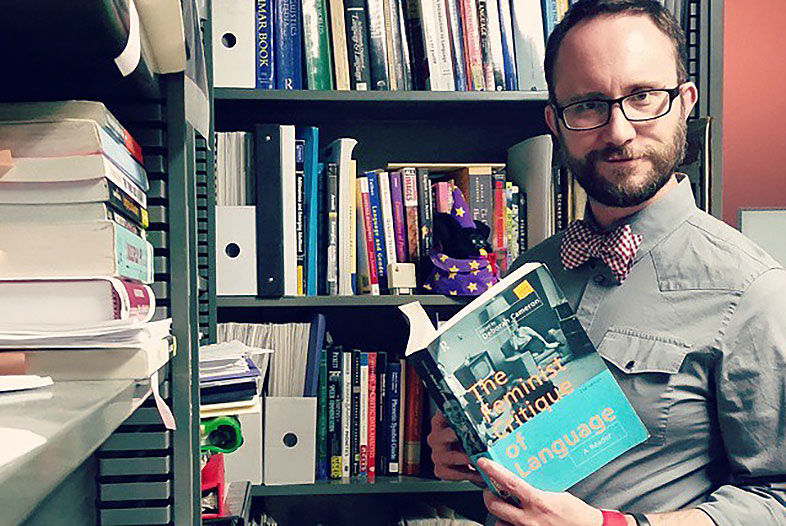
He Speaks Klingon

